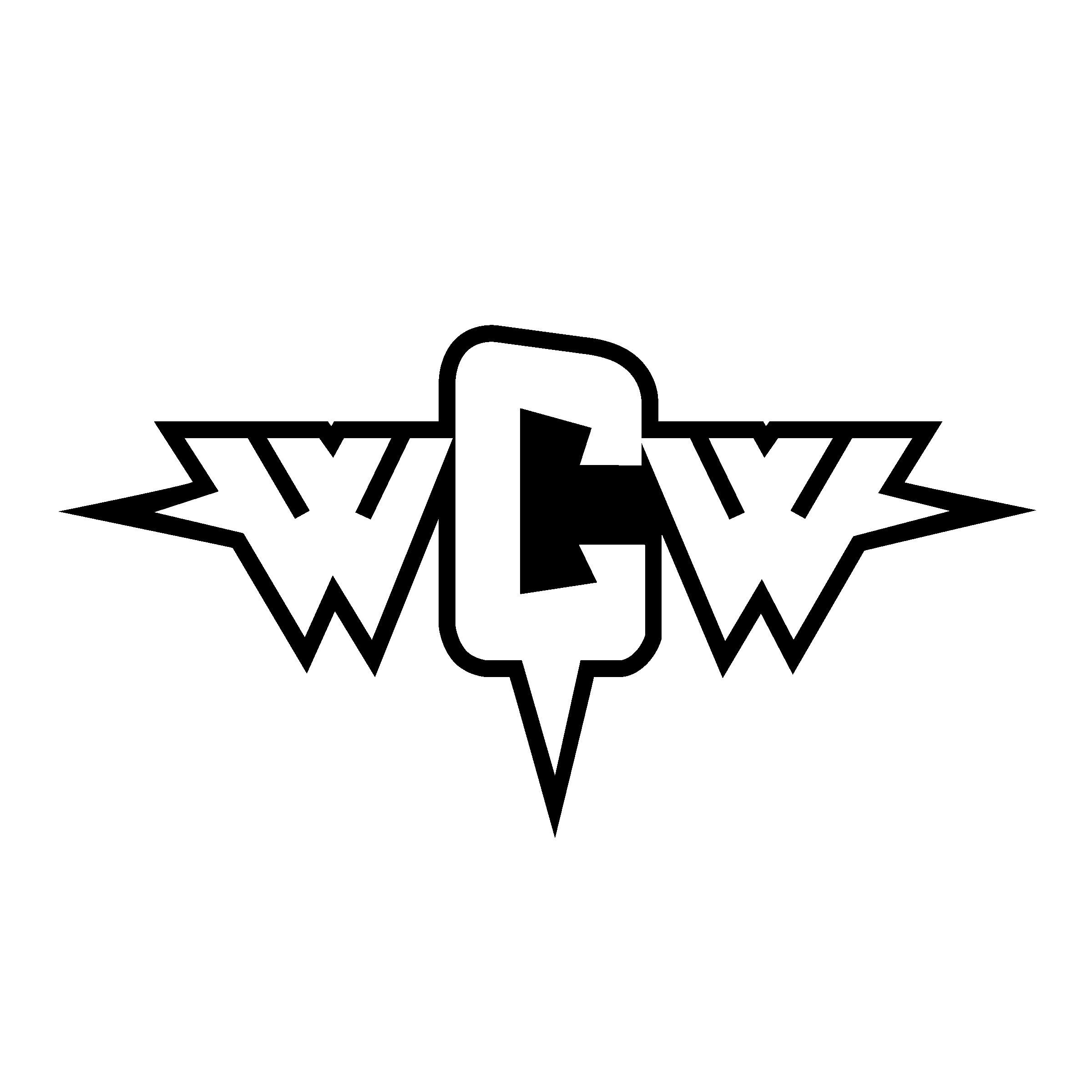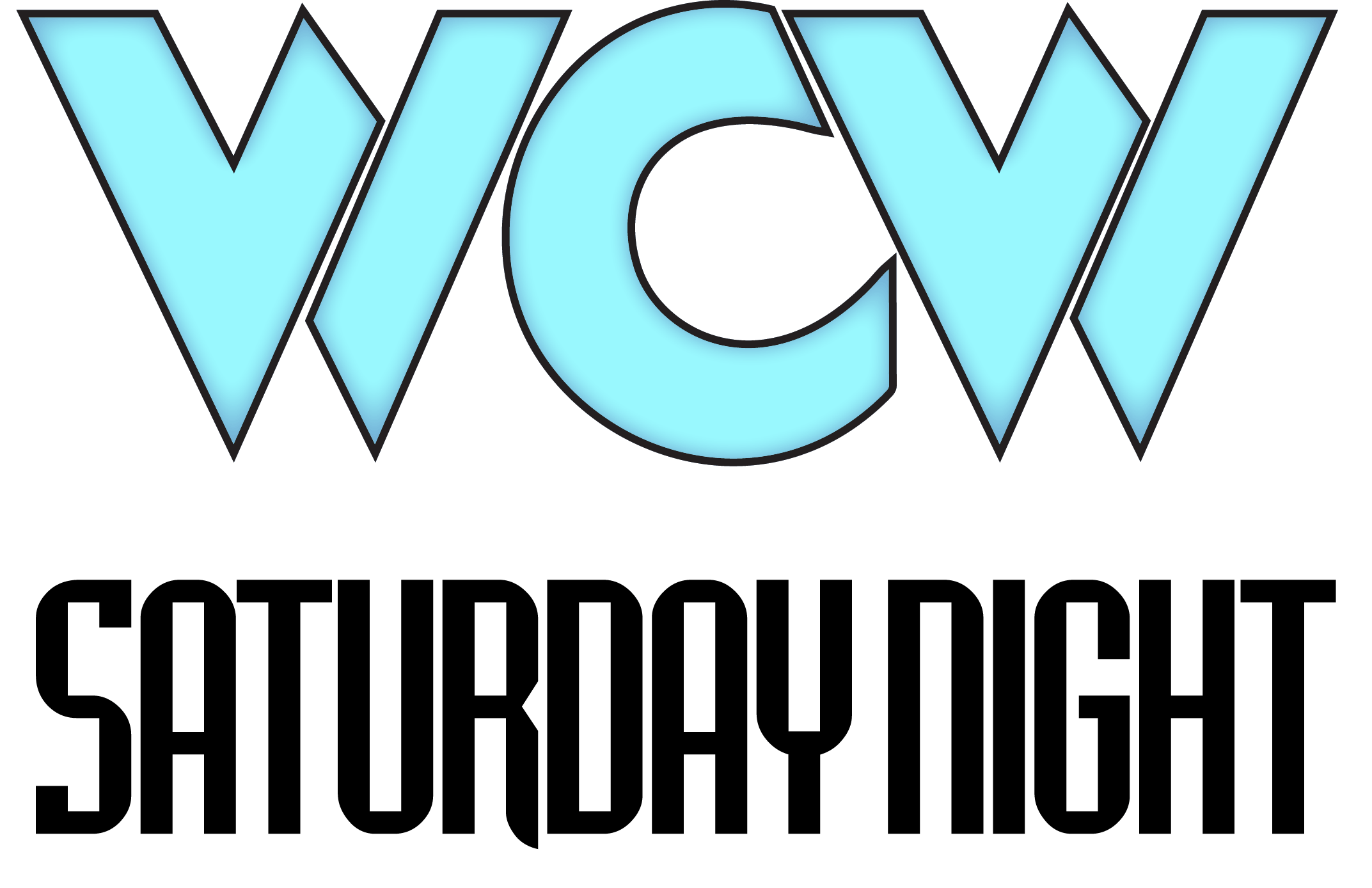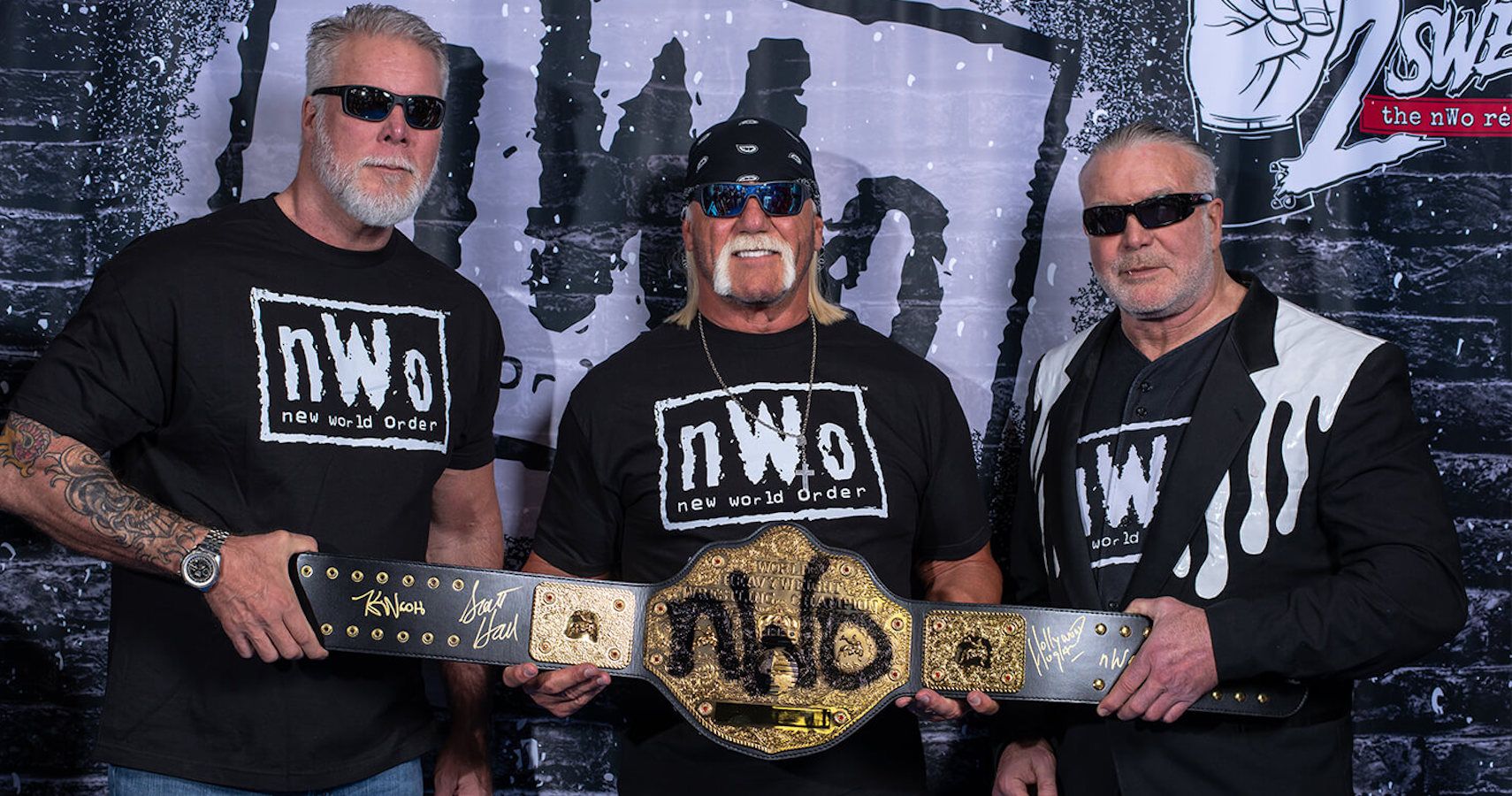Have you ever wondered what the letters "WCW" actually mean when you see them floating around online or hear them mentioned in conversation? It's a rather interesting little set of initials, one that holds a couple of quite different meanings, depending on where you happen to encounter it. For some, it brings back a flood of memories from a very particular era of sports entertainment, while for others, it's a regular part of their weekly social media routine.
You see, this abbreviation, WCW, really does have a dual life, so to speak. On one hand, it refers to a huge name from the world of professional wrestling, a company that truly made its mark during the late 1980s and 1990s. Then, on the other hand, it has taken on a completely different identity in the digital space, especially with the rise of various online platforms. It's almost like two separate stories, both tied to the same three letters.
This little piece will walk you through both of these main interpretations of what did WCW stand for, giving you a clearer picture of its background and how it's used. We'll look at where each meaning came from and why it became so popular. It's really quite a tale, considering how one set of letters can represent such different things in different contexts.
- Country Artists Top 100
- Tracy Morgan Dead
- What Is Jordan Matters Net Worth
- 60s Mod Hair
- Shortest Player In The Nfl Currently
Table of Contents
- The Start of What Did WCW Stand For in Wrestling?
- Who Helped Shape What Did WCW Stand For in the Ring?
- What Did WCW Stand For on Social Media?
- When Did What Did WCW Stand For Take Over Wednesdays?
- How Do Folks Use What Did WCW Stand For Online?
- Are There Other Ways What Did WCW Stand For?
- What Did WCW Stand For - Its Impact and Memory?
- Why Did What Did WCW Stand For Eventually Fade from Wrestling?
The Start of What Did WCW Stand For in Wrestling?
For a good number of people, especially those who grew up in the 1980s and 1990s, when they hear "WCW," their minds often go straight to a big name in professional wrestling. This particular WCW was known as World Championship Wrestling, and it was, in a way, a major player in the world of grappling and showmanship for quite some time. It had a rather interesting beginning, actually, evolving from something that was already quite established. So, it really wasn't just some brand new venture popping up out of nowhere.
This wrestling promotion, World Championship Wrestling, came into being in 1988. Its creation came about when a media company, Turner Broadcasting System, made a significant purchase. They bought the belongings of a different wrestling group called Jim Crockett Promotions, which had already been showing its matches on a television channel known as TBS. This acquisition, you see, was handled through a part of Turner's business called Universal Wrestling Corporation. It was a rather big move at the time, changing the shape of professional wrestling quite a bit.
Before it became its own distinct entity, World Championship Wrestling was more of a program or a part of a larger wrestling organization, the National Wrestling Alliance, or NWA. So, it had roots that stretched back a bit further than its official founding date. It was based out of Atlanta, Georgia, which was, in some respects, a hub for professional wrestling activity back then. The name "World Championship Wrestling" itself was, in fact, already in use for a television show, which later became the namesake for the entire company. It's kind of neat how the show's title became the company's identity.
- Who Is Tallest Actor
- What Happened To Betsy Woodruff Swan
- Highest Iq Ever In The World
- Quotes From Avatar The Last Airbender Uncle Iroh
- Filipowski Height
Who Helped Shape What Did WCW Stand For in the Ring?
The person often linked with the rise of World Championship Wrestling, the one who truly brought it to the national stage, was a media bigwig named Ted Turner. He was the owner who decided to step into the world of professional wrestling, making it a significant part of his broadcasting empire. This meant that what did WCW stand for, in its wrestling form, really got a huge boost in terms of visibility and financial backing. His involvement changed the game for the promotion, allowing it to grow and compete on a much larger scale.
Prior to Turner's full ownership, the promotion was known as Jim Crockett Promotions, and it had been a regional favorite, particularly in the Southeast. It was a respected part of the National Wrestling Alliance, which was more of a loose collection of wrestling groups across the country. However, when Ted Turner and his broadcasting company bought it in November 1988, it was given a new name: World Championship Wrestling. This renaming was a clear sign of its new ambition to be a major force in the wrestling world, moving beyond its regional beginnings. It was, in a way, a fresh start for the organization.
Over its existence, from 1988 until 2001, WCW truly became a household name for wrestling enthusiasts. It featured a roster of incredibly well-known performers, many of whom are still talked about today. Folks like Goldberg, who had an amazing winning streak, and the legendary "Hollywood" Hulk Hogan, who famously turned to the dark side, were main attractions. Then there were icons such as Ric Flair, a master of the craft, and Booker T, who showed incredible skill and charisma. And, of course, Sting, a mysterious and popular figure, was also a big part of the company's appeal. These individuals, you know, really helped define what did WCW stand for in the minds of many fans.
What Did WCW Stand For on Social Media?
Moving away from the wrestling ring, the acronym "WCW" has, in fact, taken on a completely different meaning in the digital age. If you've spent any time on social media platforms like Snapchat, Instagram, or Twitter, you've probably stumbled upon "WCW" quite often, especially on a specific day of the week. This use of the term has nothing at all to do with body slams or championship belts; it's a social trend that has truly caught on with a wide audience. It’s a very different kind of popular, you might say.
This second, more recent meaning of what did WCW stand for is "Woman Crush Wednesday." It's an internet slang term that has grown immensely popular, primarily used as a hashtag. The idea behind it is pretty straightforward: people use #WCW to show their admiration or appreciation for a woman. This could be anyone from a celebrity they look up to, a friend they cherish, a family member who inspires them, or even just someone they find attractive. It’s a positive way to highlight women who make an impact, you know.
The beauty of "Woman Crush Wednesday" is that it allows users to celebrate women for a whole host of reasons. It's not just about physical appearance, but often about acknowledging someone's talent, their strength, their achievements, or simply their presence in one's life. It has, in some respects, become a weekly ritual for many social media users, a chance to give a shout-out to someone special. This trend really shows how language can evolve and take on new forms, especially with the speed of online communication.
When Did What Did WCW Stand For Take Over Wednesdays?
The exact moment "Woman Crush Wednesday" first appeared online is a little hard to pinpoint precisely, but it definitely gained widespread traction with the rise of photo-sharing platforms and microblogging sites. It really started to pop up regularly as a hashtag, becoming a way for people to organize their posts around a common theme. It's almost as if the internet collectively decided that Wednesdays would be the day for this particular kind of shout-out. This trend, you see, isn't tied to any single event or person, but rather grew organically from user behavior.
As social media became more and more integrated into daily life, these sorts of themed days, like "Throwback Thursday" or "Flashback Friday," began to emerge. "Woman Crush Wednesday" fit right into this pattern, offering a consistent opportunity for users to engage with their followers and express positive sentiments. It provided a simple, catchy way to participate in a shared online activity. So, it wasn't just a random happening; it was part of a larger trend in how people interacted on these new platforms.
The term quickly became a common sight on various platforms, from Instagram, where visuals are key, to Twitter, where short, punchy messages rule, and even Snapchat and TikTok, which focus on quick, engaging content. Its simplicity and positive nature helped it spread quickly, making it a familiar sight for anyone browsing their feeds. It's quite interesting, actually, how a simple hashtag can become such a widespread cultural phenomenon, all centered around what did WCW stand for in this new context.
How Do Folks Use What Did WCW Stand For Online?
Using #WCW on social media is pretty straightforward, and it's mostly about showing appreciation. Typically, a person will share a photo or video of a woman they admire. Along with the visual, they'll include the hashtag #WCW in their caption. This signals to others that the post is part of the "Woman Crush Wednesday" trend. It's a simple, yet rather effective way to participate and connect with a wider audience who understands the meaning.
Sometimes, people will also write a short message explaining why they've chosen that particular woman for their "crush" of the week. This might involve praising her accomplishments, her kindness, her talent, or simply how much she means to them. It's a chance to give a public nod to someone who inspires or impacts their life. This practice, you know, adds a personal touch to the trend, making it more than just a simple hashtag.
The trend also serves as a way for different accounts to promote each other. For example, a user might post a #WCW about a small business owner they admire, tagging her account to help her gain more visibility. Or, a public figure might use it to highlight another public figure they find inspiring. This cross-promotion aspect is a rather clever way that the hashtag functions, helping to build community and support online. It really is a versatile little tag, isn't it?
Are There Other Ways What Did WCW Stand For?
While the two primary meanings for what did WCW stand for are clearly "World Championship Wrestling" and "Woman Crush Wednesday," it's worth noting that in the vast expanse of the internet and various niche communities, abbreviations can sometimes take on other, less common meanings. However, for the most part, these two are the ones you'll encounter. It's pretty rare, you know, to find another widely recognized definition for these three letters.
According to various online dictionaries and slang resources, the overwhelming consensus points to these two interpretations. If you were to search for "WCW meaning," these are the definitions that consistently pop up first. This suggests that any other uses are likely very specific to a small group or a particular context, and not something you'd typically run into in general conversation or broad online usage. So, it's pretty safe to say that these are the main two you need to keep in mind.
Therefore, when you see "WCW" written out, especially in a social media setting, it's almost certainly referring to "Woman Crush Wednesday." If you're talking about sports entertainment history, then it's without a doubt "World Championship Wrestling." Knowing the context usually makes it quite clear which meaning is being used. It's really just about understanding where you're seeing the letters, and that will tell you a lot.
What Did WCW Stand For - Its Impact and Memory?
The legacy of World Championship Wrestling, in its wrestling form, is quite substantial for many who followed the sport during its peak. It was a time when the competition between WCW and its rival, the then-WWF (now WWE), was incredibly intense, leading to some of the most memorable moments in wrestling history. This period, often called the "Monday Night Wars," pushed both companies to innovate and create compelling storylines, keeping fans on the edge of their seats. The impact of what did WCW stand for in that era is still felt by wrestling fans today, shaping how they view the sport.
The "Woman Crush Wednesday" phenomenon, on the other hand, has carved out its own unique place in modern digital culture. It's a simple yet effective way for people to express admiration and positivity online. It has fostered a sense of community around celebrating women, and it continues to be a popular hashtag used by millions across various platforms every week. Its lasting presence shows how even a small idea can grow into a widely adopted social custom, influencing how people interact and share their feelings. It's a rather nice trend, to be honest.
Both meanings of what did WCW stand for, despite their vast differences, represent moments or trends that left a mark. One speaks to a golden age of professional wrestling, remembered for its larger-than-life characters and dramatic narratives. The other reflects the evolving nature of social interaction in the digital age, showcasing how online platforms can be used for expressions of appreciation and community building. They both, in their own ways, tell a story about how culture, whether in entertainment or online, takes shape and holds meaning for people.
Why Did What Did WCW Stand For Eventually Fade from Wrestling?
World Championship Wrestling, the wrestling promotion, had a rather dramatic end to its run. After a period of intense competition and some financial struggles, the company eventually ceased its operations in 2001. This marked the end of an era for many wrestling fans who had followed the company for years. Its assets, including its vast video library and many of its contracts with performers, were then purchased by its main competitor, the World Wrestling Federation, which is now known as World Wrestling Entertainment, or WWE. It was, in a way, a bittersweet moment for the wrestling world.
The absorption of WCW into the WWF meant that a significant part of wrestling history was brought under one roof. Many of WCW's prominent wrestlers, like those mentioned earlier, eventually made their way to the WWF, continuing their careers under the banner of their former rival. This move had a profound effect on the wrestling landscape, changing the dynamics of the industry for years to come. So, while the WCW name itself stopped being used for a wrestling promotion, its influence and its performers continued to be a part of the wrestling scene.
The story of what did WCW stand for in wrestling is, in essence, a tale of a rise to prominence, fierce competition, and an eventual, though impactful, conclusion. It remains a significant chapter in the history of sports entertainment, remembered by fans for its innovative storylines, its groundbreaking characters like the New World Order (nWo), and its role in shaping the professional wrestling industry as we know it today. It's a really important piece of that history, you know, even though the company itself is no longer active.
- Nicknames Woman
- Who Is Donnie Swaggarts Wife
- Joe Rogan Oldest Kid
- Kanye Wife Grammys 2025 Outfit
- Lil Babys Bm Ayesha



Detail Author:
- Name : Maynard Senger DDS
- Username : edythe.strosin
- Email : lynch.cary@goyette.com
- Birthdate : 2005-08-13
- Address : 6777 Elizabeth Cape Suite 230 Lake Verner, PA 04795
- Phone : (934) 373-8453
- Company : Witting, O'Reilly and Littel
- Job : Structural Metal Fabricator
- Bio : Et magni velit qui labore ea alias unde. Et qui nisi non asperiores ullam vitae illo. Cum quas corporis recusandae dolor. Id veritatis est molestiae.
Socials
instagram:
- url : https://instagram.com/toni.okuneva
- username : toni.okuneva
- bio : Dolor provident sint ipsum et. Qui rem non magnam fugiat hic.
- followers : 4542
- following : 383
tiktok:
- url : https://tiktok.com/@toni_real
- username : toni_real
- bio : Omnis aut facilis velit quibusdam.
- followers : 2125
- following : 1036
twitter:
- url : https://twitter.com/toni.okuneva
- username : toni.okuneva
- bio : Recusandae blanditiis consequatur sit quia nisi. Magnam dignissimos in repudiandae ut non.
- followers : 3818
- following : 2140
facebook:
- url : https://facebook.com/toni3656
- username : toni3656
- bio : Asperiores officia qui facilis illo minus atque.
- followers : 1521
- following : 12
linkedin:
- url : https://linkedin.com/in/toni_okuneva
- username : toni_okuneva
- bio : Tempora quia eligendi nesciunt quis qui.
- followers : 1916
- following : 2046
